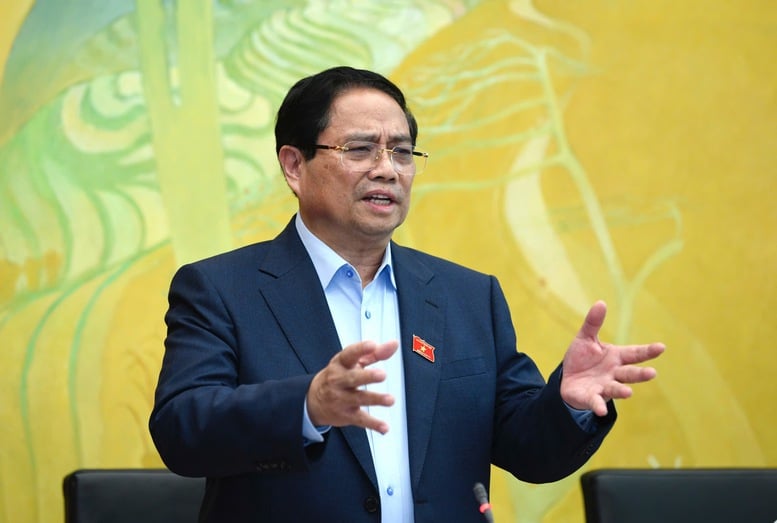
Prime Minister Pham Minh Chinh speaks at a discussion at the National Assembly delegation on the morning of May 23 - Photo: VGP/Nhat Bac
On the morning of May 23, the National Assembly discussed in groups 6 contents: (1) additional assessment of the results of the implementation of the socio -economic development plan and state budget in 2024; the implementation of the socio-economic development plan and state budget in the first months of 2025; (2) approval of the state budget settlement in 2023; (3) the supplement of the regular expenditure budget (foreign non-refundable aid) in 2025; (4) the transition to apply a number of specific mechanisms and policies that have been allowed by the National Assembly to be implemented in a number of localities after restructuring the apparatus and expanding administrative boundaries according to the policies of the Party and State; (5) the practice of thrift and anti-waste in 2024; (6) results of implementing the national goal on gender equality in 2024.
Speaking at the group, Prime Minister Pham Minh Chinh, a National Assembly delegate from Can Tho , highly appreciated the quality of the delegates' comments, showing that they had a firm grasp of the situation, fully reflected voters' opinions and proposed solutions.
At the same time, the head of the Government shared and clarified some discussion contents according to the program and were of interest to delegates.
Solutions to achieve high growth
Regarding socio-economic issues, the Government has reported, and the Prime Minister emphasized a number of points.
Accordingly, in the very difficult context of the world, many countries and regions forecast lower economic growth compared to last year and compared to the beginning of the year; but Vietnam sets a higher GDP growth target than initially expected, striving to reach 8% in 2025 and reach double digits in the coming years.
Thus, we are going against the world trend in terms of growth targets. What must we do to be effective and successful? The Prime Minister raised the issue and said that we are actively carrying out 3 strategic breakthroughs in terms of institutions, infrastructure and human resources.
In particular, institutions are the bottleneck of bottlenecks, the breakthrough of breakthroughs, the driving force and the resource for development. We are determined to basically remove institutional bottlenecks by 2025 and thereby turn institutions into competitive advantages. The Prime Minister asked the National Assembly to strongly support this.
Second, promote strategic breakthroughs in infrastructure, which is also a bottleneck because logistics costs account for 17-18% of GDP, compared to the world's about 10-11%, reducing the competitiveness of Vietnamese goods.
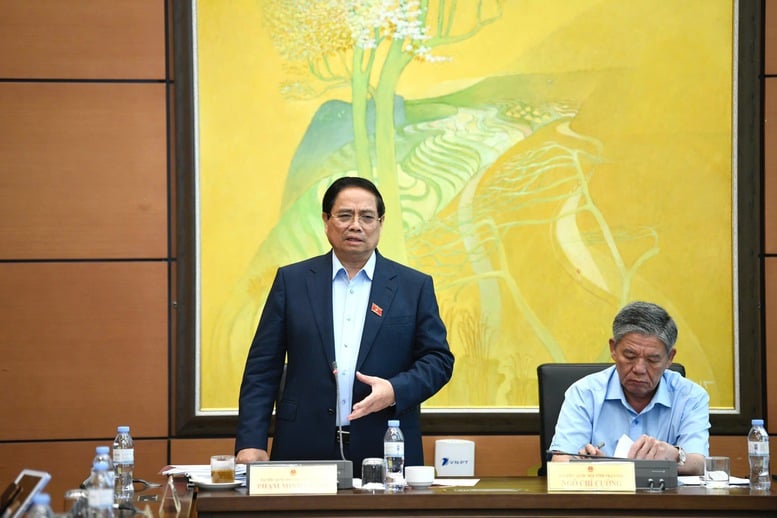
Prime Minister emphasizes solutions to achieve high growth - Photo: VGP/Nhat Bac
The Prime Minister said that he is focusing on developing strategic infrastructure, especially all five modes of transport.
In terms of roads, at least 3,000 km of expressways and 1,000 km of coastal roads will be completed this year. In terms of railways, the North-South high-speed railway project will be implemented, connecting routes with China, thereby opening up international connections with Central Asia, Europe, urban railways, and upgrading existing railways.
Regarding inland waterways, focus on developing in the Mekong Delta, which has advantages in this field. Regarding aviation, build, expand, and upgrade strategic airports that can accommodate the largest aircraft, develop the fleet, and develop many airlines to create competition that benefits the people. Regarding sea routes, build large seaports such as Lach Huyen, Cai Mep-Thi Vai, Can Gio, Hon Khoai, etc. that can accommodate large ships.
At the same time, synchronously develop infrastructure for healthcare, education, culture, sports, society, digital transformation infrastructure, science and technology infrastructure, climate change response infrastructure, etc.
Third, in human resource breakthrough, the Prime Minister said that we should shift from mainly knowledge training to comprehensive skills training, training international-class human resources to meet integration requirements, thereby increasing labor productivity.
Along with the three strategic breakthroughs, we are resolutely implementing the four pillars according to the Politburo's Resolutions: (1) Resolution 57-NQ/TW on breakthroughs in science and technology development, innovation and digital transformation; (2) Resolution 59-NQ/TW on international integration in the new situation; (3) Resolution 66-NQ/TW on innovation in law-making and enforcement; (4) Resolution 68-NQ/TW on private economic development.
Recently, we have been very active in these pillars, within a few months we have completed the construction and submission of Resolutions of the Politburo, National Assembly, and Government for implementation, contributing to promoting rapid and sustainable growth.
The Prime Minister also said that we are determined to renew traditional growth drivers including investment, export, and consumption. In particular, fiscal policy must reduce taxes, fees, and charges for businesses and people, while collecting correctly, fully, and promptly, increasing savings in regular spending to increase spending on development investment; regarding monetary policy, efforts must be made to reduce interest rates, increase access to capital, defer debt, extend debt, and postpone debt, etc.
Promote production and business, diversify markets, products and supply chains, reduce input costs, compliance costs, and minimize administrative procedures for people and businesses. Vietnam is also ready to listen and dialogue to resolve issues of concern to partners in the spirit of mutual benefit, harmonious interests, and shared risks, including continuing negotiations with the United States on tariffs and trade.
Along with that, promoting new growth drivers such as science and technology, innovation, digital transformation, digital economy, green economy, circular economy, sharing economy... These drivers are motivated and inspired by resolutions of the Party, National Assembly, Government, ministries, branches and localities that must be actively and proactively implemented.
"In difficult conditions, all countries reduce growth but we dare to do the opposite. In special conditions, there must be special solutions, sectors and levels must unite and work together, determination must be high, efforts must be great, actions must be drastic, effective, focused, each task must be completed, each task must be done properly, visionary, think deeply and do big things, assign 6 tasks clearly "clear people, clear work, clear time, clear responsibility, clear products, clear authority". Only then can we achieve the set growth target, the 2 100-year goals", the Prime Minister emphasized.
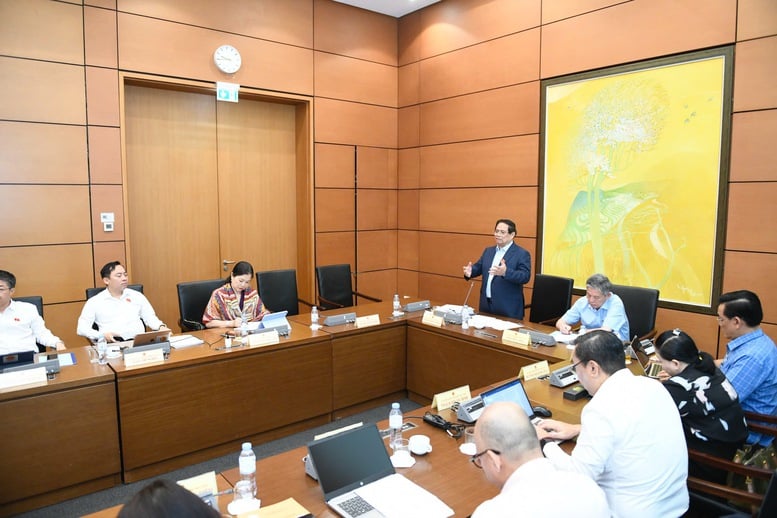
Prime Minister Pham Minh Chinh, a National Assembly delegate from Can Tho, highly appreciated the quality of the opinions expressed by the delegates, showing that they had a firm grasp of the situation, fully reflected voters' opinions and proposed solutions - Photo: VGP/Nhat Bac
Building planning and standards, people and businesses just do it.
Regarding streamlining the apparatus, arranging administrative boundaries at all levels and organizing two-level local governments, the Prime Minister said that this will help reduce intermediaries and administrative procedures; expand development space and make connections more convenient.
However, the Prime Minister emphasized that the most important point is to change the state of the apparatus from passively receiving and processing requests from people and businesses to proactively and actively serving people and businesses. To do this, the Party Committee, the government, the entire political system and the people must actively participate.
The Prime Minister said that in recent years, the Government and agencies have actively developed plans; in recent times, they have promoted the reduction of administrative procedures, towards developing standards, regulations, and other necessary conditions and then publicly announcing them; people and businesses just follow the plans, regulations, standards, and conditions, doing what the law does not prohibit; and instead of having to pre-check and grant licenses, the government has increased post-check, inspection, and supervision.
The Prime Minister also said that it is necessary to build a database in the fields of land, population, marriage, housing, students, patients, etc. to quickly complete procedures and meet the requirements of administrative reform.
"Wait until the jungle of procedures is finished and the opportunity is gone"
Another very important issue mentioned by the Prime Minister is to promote decentralization along with resource allocation, enhance enforcement capacity and strengthen inspection and supervision.
The Prime Minister raised the issue: "Decentralization without allocating resources, everything must be requested, it cannot be done, it will cause many administrative procedures". Especially there are things that must be done, no one has any objection but still have to go through procedures.
From there, the Prime Minister pointed out a problem that has not been fully assessed yet, which is the waste of opportunities and time. According to the Prime Minister, opportunities come and go very quickly, but if we "wait to process a jungle of procedures, the opportunity will be gone."
Therefore, decentralization is based on the spirit of proactively serving the people and businesses; unexpected events that bring opportunities need to be focused on and resolved quickly, and cannot wait for administrative procedures. The Prime Minister proposed that the National Assembly decentralize and delegate power to the Government, and the Government decentralize and delegate power to ministries, branches and localities.
Along with decentralization and delegation of power to localities, ministries, branches and agencies at the central level play a constructive role, not doing specific work but focusing on implementing 6 groups of state management tasks: (1) developing strategies, planning and plans; (2) building institutions and laws for management and development; (3) building mechanisms and policies to mobilize resources for rapid and sustainable development of sectors and fields; (4) designing tools to inspect, monitor and control power; (5) evaluating, summarizing practices, drawing lessons, building theories, replicating good models and good practices and removing difficulties and obstacles; (6) implementing emulation and commendation work, handling discipline promptly, accurately, fairly, reasonably and effectively.
Changing the state of serving people in health and education
The Prime Minister also spent a lot of time mentioning the education and health sectors in the implementation of two-level local government.
Emphasizing that people are the center and subject, the Prime Minister said that under the direction of General Secretary To Lam, the Government is currently developing two draft resolutions to submit to the Politburo on modernization and breakthrough in education and training development and on breakthrough in people's health care, meeting the requirements of national development in the new era.
In the health sector, the Prime Minister said that the transformation of the state is very important, from passively receiving and serving people in medical examination and treatment to proactively serving, caring for, and protecting people's lives and health, including medical examination and treatment. From that goal, tasks and solutions will be calculated, from tasks and solutions will be calculated, from organizations will be calculated, from organizations will be calculated people, ensuring rationality and efficiency. In particular, it is necessary to develop medical facilities, especially strengthening preventive medicine and grassroots medicine - the places closest to the people.
Similarly, there must be a shift in the state of education from primarily imparting knowledge to training in skills and developing the whole person.
The Prime Minister said that education must focus on improving the quality of teaching and learning, including issues of learning materials, facilities, and teaching methods. Along with that, there must be mechanisms and policies to encourage socialization, especially at the university level, while taking care of general education, exempting tuition fees for public school students and supporting tuition fees for private school students.
In particular, it is necessary to ensure equal access to education for remote, border, island areas and vulnerable groups; to do this, there must be schools and classes, especially focusing on building boarding and semi-boarding schools. "Otherwise, if the school is far from home, it will be very difficult for children to go to school, and if there is no lunch, how can they endure it?", the Prime Minister said.
Along with that, it is necessary to implement two free sessions per day, the second session focusing on training in life skills, culture, sports, arts, etc. "There must be a comprehensive approach like that to solve problems related to people," the Prime Minister stated.
Regarding the issue of microfinance, the Prime Minister said that he has assigned the task to the Governor of the State Bank, who is also the Chairman of the Vietnam Bank for Social Policies, to ensure equal access and handle the implementation of a two-tier government. The spirit is to implement a two-tier government but not to interrupt tasks, especially key tasks serving people, serving production and business, serving growth.
Accepting "pain" to solve backlog projects
Regarding the issue of saving and fighting waste, the Prime Minister said that we have "correctly diagnosed the disease", the General Secretary has written an important article, and agencies are continuing to build and perfect institutions to organize implementation.
The Government has reported to the National Assembly on waste related to backlog projects that have lasted for many years and multiple terms, as well as waste related to inappropriate policies such as those in the wind and solar power sectors.
The Prime Minister said that according to statistics from localities, the whole country has about 2,200 backlogged projects. If these projects can be resolved, more than 230 billion USD, equivalent to about 50% of the country's GDP, can be released. In order to release resources from backlogged projects, the Government is continuing to develop policy mechanisms to submit to competent authorities for handling.
Regarding wind power and solar power, recently a series of projects had to be handled through Resolution 133. The cause comes from bad policies, leading to negativity, massive construction of projects that are not in accordance with planning, procedures...
The head of the Government affirmed that the viewpoint is not to legalize violations but to find solutions to handle them. Such as handling the organization, human resources, handling the institutional aspect, removing legal obstacles, removing implementation methods. "When the situation changes, the tasks must change, the policy mechanism must change," said the Prime Minister.
Notably, the Prime Minister said that it is necessary to accept this as a "disease", and if there is an illness, it must be treated, but the treatment must be correct. "To treat an illness, one must have surgery, which is painful and requires blood loss, and two, clinical treatment, taking medicine, still costs money. In short, if we overcome the consequences, we cannot expect to get 100% back, we must accept the loss, accept the pain, accept what must be cut off", the Prime Minister stated his opinion. The important thing is that cutting off this pain will give us new lessons, give us new experiences to avoid repeating it in the future.
"Resolving the backlog of projects is something that cannot be avoided. We must accept some loss and consider it as tuition. From there, we will develop policies and mechanisms, and be determined to resolve and resolve them completely," said Prime Minister Pham Minh Chinh.
In addition, the Prime Minister said that land for forestry and agricultural farms is also a burning issue. Previously, the management and establishment of forestry farms were very necessary in the development process, but when implementing, management was lax, without timely, flexible and effective policies.
Therefore, now we must deal with the consequences both legally and practically, and find the best way to overcome them. If we do not accept the pain and loss, we cannot completely resolve the issue.
Regarding the handling of headquarters after streamlining the apparatus and rearranging boundaries, the Prime Minister said that he had assigned the Ministry of Finance to provide guidance, but the most important thing is for local Party committees and authorities to avoid waste. There are many ways to do it, and they must be creatively applied in specific conditions at the locality, agency, or unit, as long as there is no negativity, corruption, or waste, and the law can never cover all aspects of life.
The Prime Minister also spent a lot of time speaking about solutions to respond to climate change, develop irrigation infrastructure, and transport infrastructure in the Mekong Delta according to the roadmap, such as achieving the goal of having 1,200 km of expressway by 2030, and at the same time building and expanding airports in Ca Mau, Phu Quoc, Kien Giang, Can Tho, Cai Cui port, Tran De port, Hon Khoai port, etc.
Regarding the fight against illegal, unreported, and unregulated fishing, the Government has directed many drastic solutions. The Prime Minister said that it is very important that the Party Committee, the government, and the Fatherland Front must get involved to propagate, mobilize, and call on people to clearly understand the benefits of each individual and the common benefits, national and ethnic interests from complying with regulations, thereby raising people's awareness of compliance, compliance, and participation; at the same time, the Party Committee and the government must make efforts to create jobs, jobs, and livelihoods for people, promote aquaculture instead of fishing... If all relevant entities have a high sense of responsibility, are proactive, and determined, we can overcome this immediately.
Ha Van
Source: https://baochinhphu.vn/thu-tuong-the-gioi-giam-tang-truong-nhung-viet-nam-phan-dau-dat-muc-cao-102250523142421087.htm





![[Photo] Top players gather at the 2025 Nhan Dan Newspaper National Table Tennis Championship](https://vphoto.vietnam.vn/thumb/1200x675/vietnam/resource/IMAGE/2025/5/23/9ad5f6f4faf146b08335e5c446edb107)


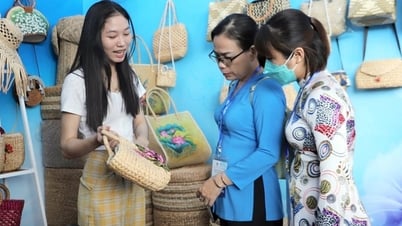

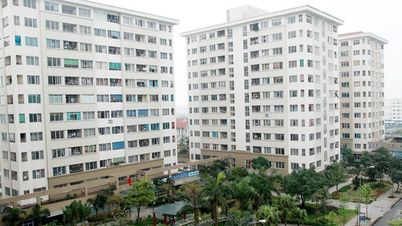
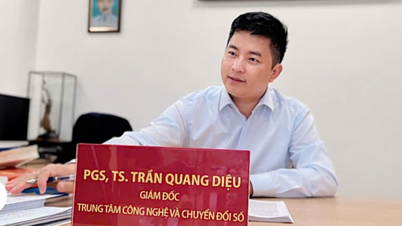

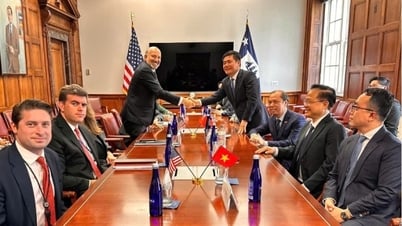

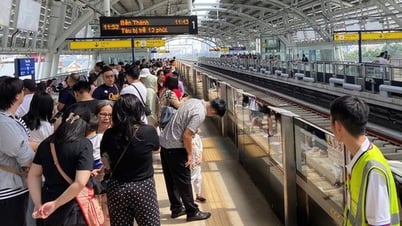
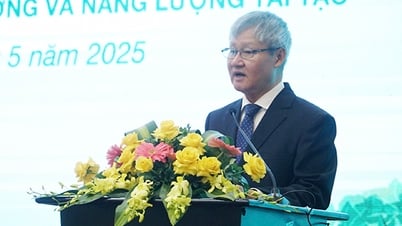




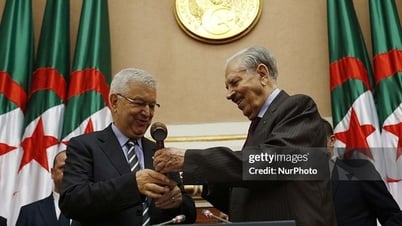
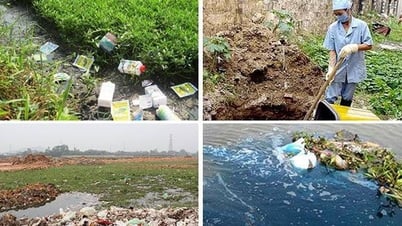
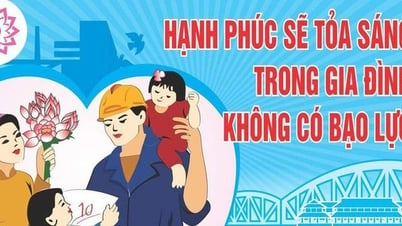
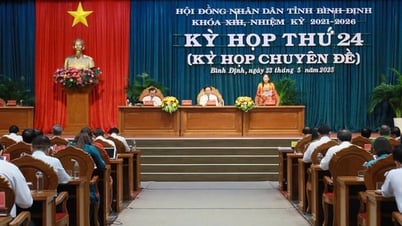
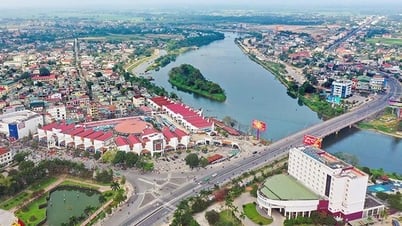
















































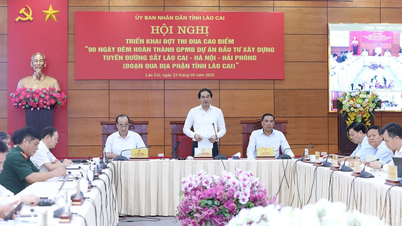

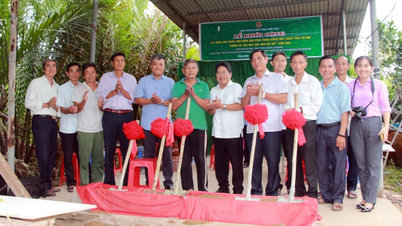

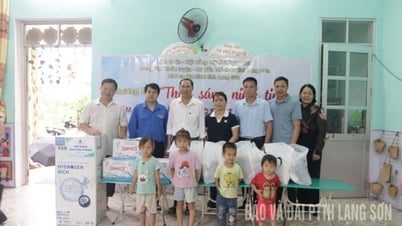





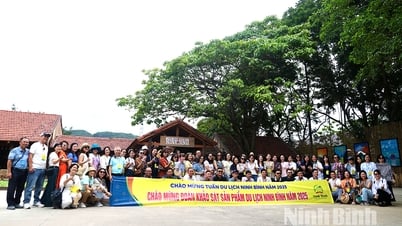











Comment (0)